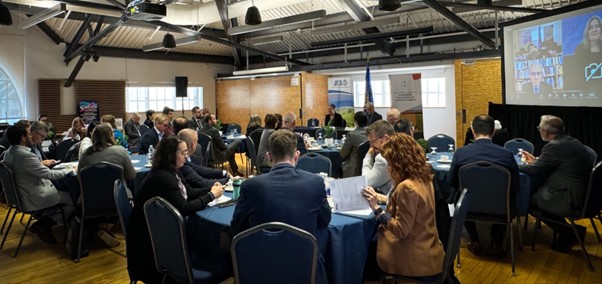
The Inter-American Institute for Cooperation on Agriculture (IICA), in collaboration with CropLife Canada, hosted a workshop to analyze the evolution of food systems and explore the agricultural sector’s potential to deliver affordable food while maintaining environmental balance. This event aimed to provide a balanced perspective, one that acknowledges the benefits food systems have generated over time, while also addressing the persistent challenges they face.
Participants delved into significant issues such as hunger, diet accessibility, obesity, greenhouse gas emissions, and socioeconomic disparities, while also examining recent crises that have impacted food systems.
|
“The workshop assessed the ability of agri-food systems to meet Sustainable Development Goals (SDGs) and the objectives of the Paris Agreement, highlighting both the progress made and the areas of ongoing concern” |
The workshop also emphasized Maximum Residue Limits (MRLs) and their role in ensuring food safety, providing valuable insights for professionals in agriculture, food safety, and regulatory compliance. By considering both the positive and negative aspects of food systems, participants were encouraged to identify weaknesses and leverage strengths in designing public policies and mobilizing key actors to address today’s pressing food system challenges.
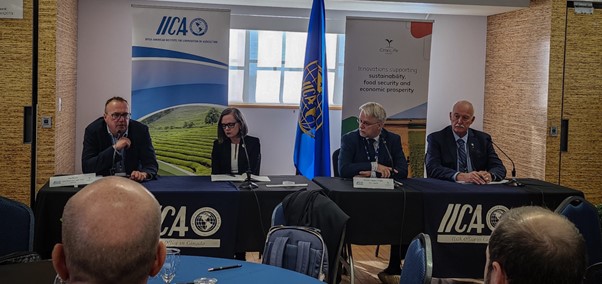
The Importance of Trust and Capacity Building
The workshop highlighted the importance of establishing trust through robust regulatory capacity. Various speakers emphasized the need for nations to collaborate and share knowledge around regulatory frameworks, particularly when it comes to new agricultural technologies, like gene editing. One example of this is Dr. Eugenio Diaz Bonilla, an IICA Special Advisor who discussed the importance of a "balanced and disaggregated analysis" to address the challenges of food security and sustainability. Senator Robert Black also stressed the need for a more comprehensive understanding of soil health, highlighting its crucial role in supporting resilient agricultural systems. By fostering this capacity-building effort, countries can navigate the regulatory landscape with confidence and effectiveness.
|
Key takeaway: Capacity building in regulatory frameworks is crucial for fostering trust and ensuring effective collaboration across nations. This trust is foundational for countries to embrace innovative agricultural technologies while maintaining high safety standards. |
Regulatory Alignment: A Path to Innovation
As discussions progressed, the importance of regulatory alignment became increasingly evident. Panelists underscored that regulatory misalignment often hampers the introduction of innovative agricultural practices. Dr. Eugenio Diaz Bonilla emphasized this point, noting, "No. We cannot do the transformation or get to the good, benefits and eliminate the cost without the person that are really in food systems to get to healthy diet, income, employment generation, and environmental sustainability" highlighting the need for collaboration across the agricultural value chain to achieve effective transformation.
This is particularly important for streamlining trade, as seen in the discussion around maximum residue levels (MRLs), where misaligned regulations can pose a significant barrier to agricultural exports. By collaborating on approvals and leveraging one another’s regulatory resources, countries can more efficiently navigate the complexities of agricultural innovation. For instance, aligning regulatory processes could facilitate quicker access to essential technologies, ultimately leading to enhanced productivity and sustainability in agriculture. This approach is particularly vital, given the limited resources many countries face within their regulatory agencies.
The workshop emphasized that through collaboration, nations can overcome these limitations and streamline processes for stakeholders, making it easier to adopt new agricultural innovations.
|
Key takeaway: Streamlining regulatory processes across borders, particularly in areas like maximum residue levels (MRLs), can accelerate the introduction of innovative agricultural practices, enhance competitiveness, and foster more efficient trade within the Americas. |
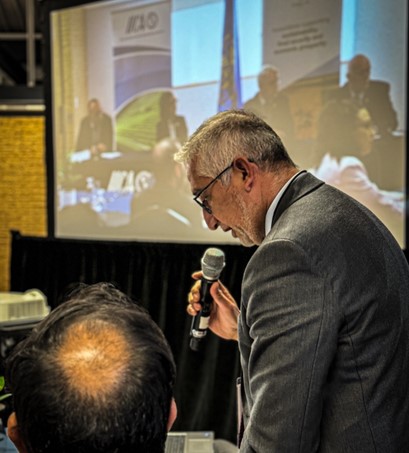
Engaging with International Partners
The workshop underscored the critical need for engagement with international partners to strengthen agricultural systems. IICA, a long-term partner in the region, is actively promoting collaboration among countries in the Americas, aiming to address similar regulatory interests. This collaborative effort promotes a unified approach to agricultural regulation and enhances the capacity of countries to tackle common challenges. Lloyd Day, in his keynote speech, emphasized the importance of working together, stating: "There is no one size fits all when it comes to regulating a world with diverse regions, topographies, climates, growing conditions, and cultures."
Participants noted that such engagements are beneficial not only for knowledge exchange but also for establishing networks that can facilitate future collaborations. By working together, countries can better align their regulatory frameworks and respond collectively to emerging agricultural challenges.
|
Key takeaway: Building partnerships with neighboring countries enhances the exchange of knowledge and best practices in agricultural regulation. These relationships are crucial for creating a resilient agricultural sector capable of adapting to global changes. |
The Role of Science in Regulatory Decisions
A significant portion of the dialogue focused on the role of science in regulatory decision-making. Participants raised concerns about the potential influence of non-peer-reviewed science on regulatory outcomes. For example, concerns were raised regarding the use of non-peer-reviewed data in assessing the safety of new crop protection products, highlighting the potential for scientific bias. However, panelists reassured attendees that regulatory processes are grounded in rigorous scientific standards and protocols.
The data generated for new active ingredients, while it may not always undergo peer review before use, adheres to high-quality laboratory practices designed to ensure safety and efficacy. Lloyd Day, IICA Deputy Director General, emphasized this point, noting: "We need regulations that understand this and not try to ram a square peg into a round hole because one region or country may think in a certain way." The emphasis on scientific rigor is vital for maintaining public trust in regulatory decisions and ensuring that agricultural products are safe for consumers.
|
Key takeaway: The workshop emphasized the importance of rigorous scientific standards and protocols in regulatory decision-making. This commitment to science-based regulation is essential for maintaining public trust and ensuring the safety and sustainability of agricultural products. |
Challenges in the EU MRL Framework
The workshop addressed the challenges posed by the European Union's (EU) Maximum Residue Levels (MRLs) policies on trade and agricultural practices in the Americas. Mac Ross, Vice President of Commercial Policy & Crop Protection in the Canada Grains Council, highlighted the significant impact of EU MRLs on Canadian grain exports, noting that Canada ships its production to over 140 countries. He emphasized the need for a rules-based trading system and a more harmonized approach to MRLs globally, citing the increasing trend of non-tariff trade barriers (NTBs) related to MRLs.
Greg Bartley, Director of Crop Quality and Crop Protection in Pulse Canada, echoed these concerns, emphasizing that Canada exports 85% of its pulse production to over 130 different markets. He explained that these varied MRL policies create inconsistencies, potentially limiting the use of registered crop protection products and impacting farm planning. Participants emphasized the need for continued dialogue with the EU to advocate for science-based regulations, acknowledging the significant influence of EU MRL policies on global trade. This encounter underlined the need for open communication channels and collaborative efforts between the Americas and the EU to ensure fair and science-based regulatory practices.
|
Key takeaway: Advocacy for science-based regulatory frameworks in the EU is crucial for maintaining trade relationships and ensuring food security. By working collaboratively, countries can navigate the challenges posed by evolving regulatory landscapes. |
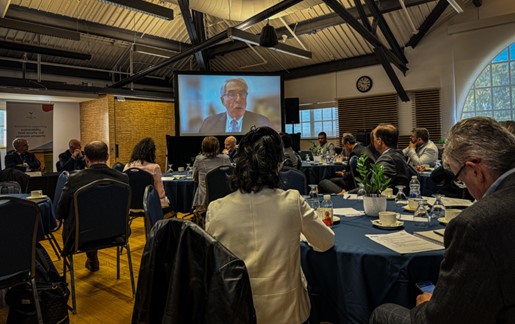
A Call for Greater Regional Collaboration
As discussions concluded, the need for greater collaboration among countries in the Americas emerged as a central strategy for addressing shared challenges. Panelists advocated for aligning messaging and responses to EU policies, emphasizing the importance of presenting a unified front to tackle regulatory hurdles effectively.
This collaborative approach would not only amplify the voices of countries in the Americas but also strengthen collective efforts in promoting harmonized regulatory practices. For example, participants acknowledged the significant impact of EU MRL policies on agricultural trade and discussed the need for a unified approach to address these challenges.
By sharing insights and strategies, countries can learn from one another and develop solutions that cater to their unique agricultural contexts. Senator Black highlighted the importance of this approach, stating, "We need to address the root cause of degradation by reducing harmful practices and encouraging regenerative farm approaches and practices that can restore and sustain the land."
|
Key takeaway: Enhanced collaboration among countries in the Americas can amplify voices and strengthen collective efforts in addressing regulatory challenges. A united approach will foster innovation and improve regulatory practices across the region. |
The recent IICA workshop shed light on the critical connection between agricultural innovation and regulatory practices, especially in the Americas. By focusing on trust, capacity building, and scientific integrity, stakeholders can pave the way for a sustainable agricultural future. The workshop highlighted the importance of knowledge sharing, with participants emphasizing that Canada's proactive approach to sharing regulatory frameworks is vital for helping nations navigate the complexities of modern agriculture and embrace new technologies. Panelists underscored that aligning regulatory processes is imperative for facilitating innovation. By collaborating on approvals and sharing resources, countries can enhance productivity and sustainability in agriculture. As exemplified by initiatives like the collaborative effort involving Belize and Honduras, these partnerships promote a unified approach to agricultural regulation, strengthening the capacity of nations to tackle common challenges. Maintaining scientific rigor in regulatory decision-making is essential for public trust and safety.
Now, commitment to high standards ensures that agricultural products are safe for consumers and addresses concerns about food safety and environmental impacts. Furthermore, advocating for science-based regulatory frameworks, especially in engagements with the EU, is crucial for preserving trade relationships and ensuring food security. Ultimately, greater regional collaboration is necessary for addressing shared agricultural challenges. By presenting a united front and sharing strategies, countries can amplify their voices and enhance their collective ability to foster innovation. As nations work together to harmonize regulatory frameworks, they can ensure food safety and security while cultivating a thriving agricultural landscape capable of adapting to a rapidly changing world.
|
|
We invite you to join the conversation! Watch the workshop's video on our YouTube and Facebook for a deeper dive into this enlightening discussion. This information is available in English or Spanish. Don’t forget to follow us and visit the IICA Blog for more insightful content on agricultural advancements and collaboration opportunities. Together, we can build a brighter future for agriculture! |
Acknowledgements: This event was organized by the Inter-American Institute for Cooperation on Agriculture (IICA) in collaboration with CropLife Canada. Special thanks to CropLife Canada and all the speakers for their valuable contributions, ideas during the discussions, and their involvement in organizing the event. Their expertise enriched the dialogue on sustainable practices in agriculture.
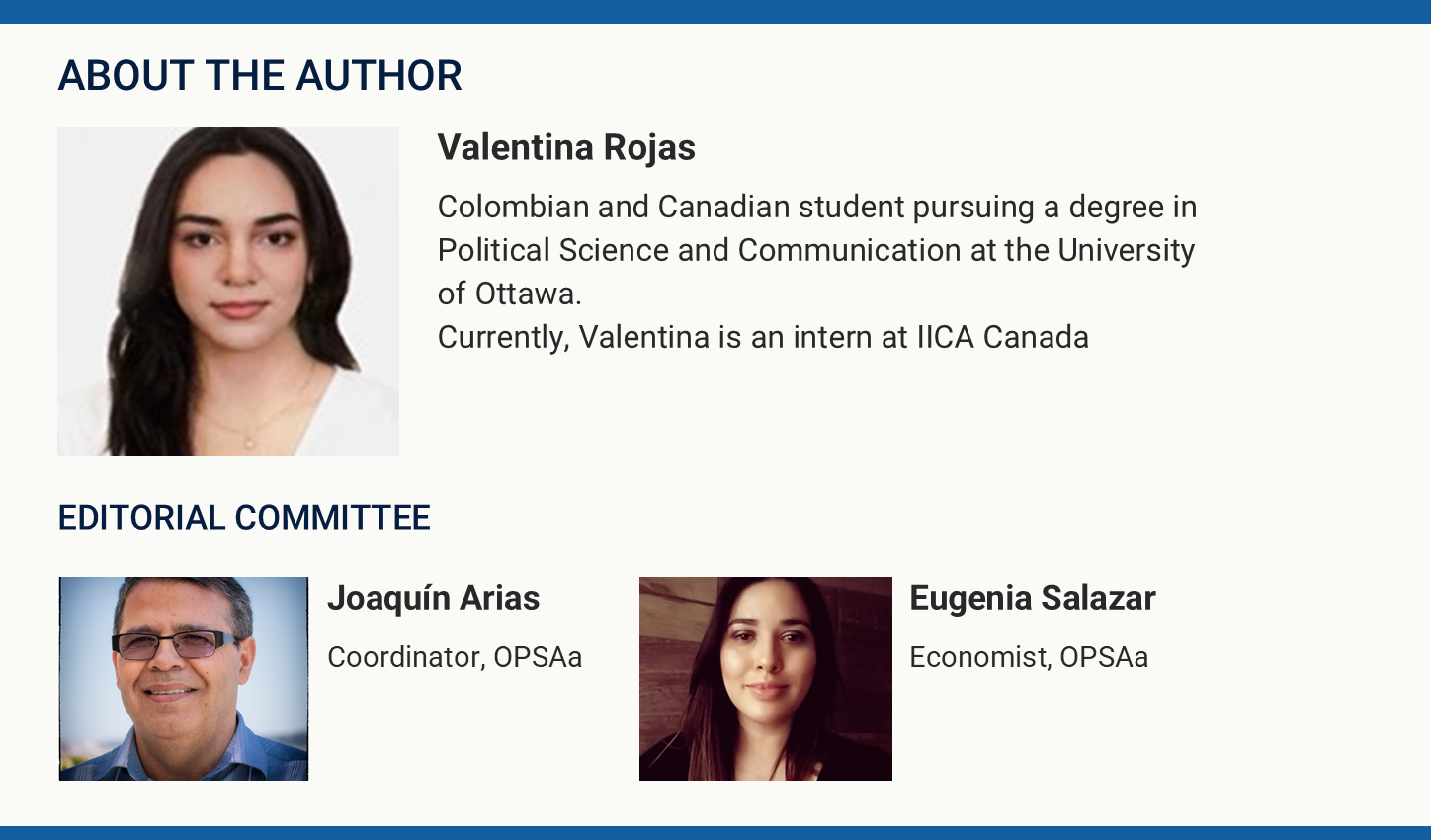
*The opinions expressed in this blog are those of the author. They do not purport to reflect the opinions or views of the IICA or its members.
Add new comment